
Yoweri Kaguta Museveni is a Ugandan politician who has been President of Uganda since 1986 and the only remaining dictator in East African Region. Museveni was involved in rebellions that toppled Ugandan leaders Idi Amin (1971–79) and Milton Obote (1980–85) before he captured power in the 1980s.

Paul Kagame is a Rwandan politician and former military leader. He is the 6th and current President of Rwanda, having taken office in 2000 when his predecessor, Pasteur Bizimungu, was dismissed and arrested. Kagame previously commanded the Rwandan Patriotic Front, the Uganda-based rebel force that invaded Rwanda and was one of the parties of the conflict during the Rwandan genocide. He was considered Rwanda's de facto leader when he served as Vice President and Minister of Defence from 1994 to 2000. He was re-elected in August 2017 with an official result of nearly 99% in an election criticized for numerous irregularities. He has been described as the "most impressive" and "among the most repressive" African leaders.
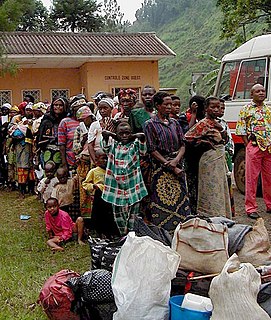
The Second Congo War began in the Democratic Republic of the Congo in August 1998, little more than a year after the First Congo War, and involved some of the same issues. The war officially ended in July 2003, when the Transitional Government of the Democratic Republic of the Congo took power. Although a peace agreement was signed in 2002, violence has continued in many regions of the country, especially in the east. Hostilities have continued since the ongoing Lord's Resistance Army insurgency, and the Kivu and Ituri conflicts.
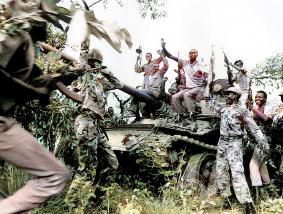
The Second Sudanese Civil War was a conflict from 1983 to 2005 between the central Sudanese government and the Sudan People's Liberation Army. It was largely a continuation of the First Sudanese Civil War of 1955 to 1972. Although it originated in southern Sudan, the civil war spread to the Nuba mountains and the Blue Nile. It lasted for 22 years and is one of the longest civil wars on record. The war resulted in the independence of South Sudan six years after the war ended.

John Garang de Mabior was a Sudanese politician and revolutionary leader. From 1983 to 2005, he led the Sudan People's Liberation Army during the Second Sudanese Civil War, and following a peace agreement he briefly served as First Vice President of Sudan for 3 weeks until his death in a helicopter crash on 30 July 2005. A developmental economist by profession, Garang was a major influence on the movement that led to the foundation of South Sudan.
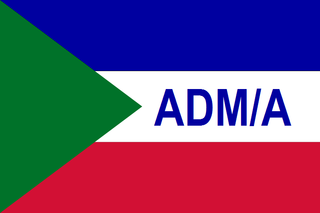
The Allied Democratic Forces is a rebel group in Uganda and the Democratic Republic of the Congo (DRC), considered a terrorist organisation by the Ugandan government. It was originally based in western Uganda but has expanded into the neighbouring DRC.

The First Congo War (1996–1997), also nicknamed Africa's First World War, was a civil war and international military conflict which took place mostly in Zaire, with major spillovers into Sudan and Uganda. The conflict culminated in a foreign invasion that replaced Zairean President Mobutu Sese Seko with the rebel leader Laurent-Désiré Kabila.
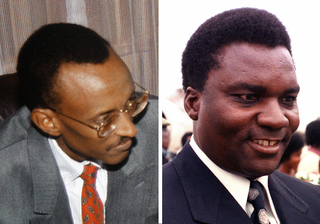
The Rwandan Civil War was a large-scale civil war in Rwanda fought between the Rwandan Armed Forces, representing the country's government, and the rebel Rwandan Patriotic Front (RPF) from 1 October 1990 to 18 July 1994. The war arose from the long-running dispute between the Hutu and Tutsi groups within the Rwandan population. A 1959–1962 revolution had replaced the Tutsi monarchy with a Hutu-led republic, forcing more than 336,000 Tutsi to seek refuge in neighbouring countries. A group of these refugees in Uganda founded the RPF which, under the leadership of Fred Rwigyema and Paul Kagame, became a battle-ready army by the late 1980s.

The Democratic Party is a moderate conservative political party in Uganda led by Norbert Mao. The DP was led by Paul Ssemogerere for 25 years until his retirement in November 2005. John Ssebaana Kizito replaced Ssemogerere, and led the party until February 2010, when Norbert Mao was elected party president.

The Army for the Liberation of Rwanda was a rebel group largely composed of members of the Interahamwe and Armed Forces of Rwanda. Operating mostly in the eastern regions of the Democratic Republic of the Congo along the border with Rwanda, it carried out attacks throughout the Second Congo War against forces aligned with Rwanda and Uganda. In 2000, the ALiR agreed to merge with the Hutu resistance movement based in Kinshasa into the new Democratic Forces for the Liberation of Rwanda (FDLR). ALiR was largely supplanted by the FDLR by 2001.

Fred Gisa Rwigema was a Rwandan politician and military officer. He was the founder of the Rwandan Patriotic Front (RPF), a political and military force formed by Rwandan Tutsi exile descendants of those forced to leave the country after the 1959 Hutu Revolution.

The Ugandan Bush War, also known as the Luwero War, the Ugandan Civil War or the Resistance War, was a civil war fought in Uganda by the official Ugandan government and its armed wing, the Uganda National Liberation Army (UNLA), against a number of rebel groups, most importantly the National Resistance Army (NRA), from 1980 to 1986.

Rwenzururu is a subnational kingdom in western Uganda, located in the Rwenzori Mountains on the border with the Democratic Republic of the Congo. The kingdom includes the districts of Bundibugyo, Kasese and Ntoroko. Rwenzururu is also the name given to the region the kingdom is located in.
The military history of Uganda begins with actions before the conquest of the country by the British Empire. After the British conquered the country, there were various actions, including in 1887, and independence was granted in 1962. After independence, Uganda was plagued with a series of conflicts, most rooted in the problems caused by colonialism. Like many African nations, Uganda endured a series of civil wars and coup d'états. Since the 2000s in particular, the Uganda People's Defence Force has been active in peacekeeping operations for the African Union and the United Nations.

The Lord's Resistance Army (LRA), also known as the Lord's Resistance Movement, is a rebel group and heterodox Christian group which operates in northern Uganda, South Sudan, the Central African Republic, and the Democratic Republic of the Congo. Originally known as the United Holy Salvation Army and Uganda Christian Army/Movement, its stated goals include establishment of multi-party democracy, ruling Uganda according to the Ten Commandments, and Acholi nationalism.
The National Army for the Liberation of Uganda was a rebel group opposed to the Ugandan government. It was formed in 1988 in western Uganda and moved into eastern Democratic Republic of the Congo, where it merged with the Allied Democratic Forces (ADF), another Ugandan rebel group.
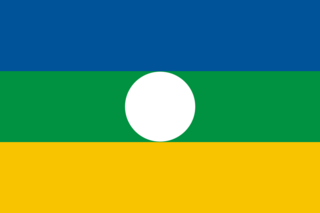
The Rwenzururu movement was an armed secessionist movement active in southwest Uganda, in the subnational kingdom of Tooro. The group was made up of Konjo and Amba fighters and was led by Isaya Mukirania. It disbanded in 1982 following successful peace negotiations with the Ugandan government.
Operation Thunderbolt was the codename for a military offensive by the South Sudanese SPLA rebel group and its allies during the Second Sudanese Civil War. The operation aimed at conquering several towns in Western and Central Equatoria, most importantly Yei, which served as strongholds for the Sudanese Armed Forces (SAF) and helped the Sudanese government to supply its allies, the Ugandan insurgents of the WNBF and UNRF (II) based in Zaire. These pro-Sudanese forces were defeated and driven from Zaire by the SPLA and its allies, namely Uganda and the AFDL, in course of the First Congo War, thus allowing the SPLA launch Operation Thunderbolt from the Zairian side of the border. Covertly supported by expeditionary forces from Uganda, Ethiopia, and Eritrea, the SPLA's offensive was a major success, with several SAF garrison towns falling to the South Sudanese rebels in a matter of days. Yei was encircled and put under siege on 11 March 1997. At the same time, a large group of WNBF fighters as well as SAF, FAZ, and ex-Rwandan Armed Forces soldiers was trying to escape from Zaire to Yei. The column was ambushed and destroyed by the SPLA, allowing it to capture Yei shortly afterward. Following this victory, the South Sudanese rebels continued their offensive until 12 April, capturing several other towns in Equatoria and preparing further anti-government campaigns.
Dusman Abassi Sabuni was a Ugandan military officer. Born in Lira, Uganda, he became an officer in the Uganda Army following the completion of his secondary schooling. After Colonel Idi Amin's 1971 military coup, Sabuni quickly rose through the ranks and was made brigadier general and Minister of Industry. Sabuni fled the country in 1979 after Amin's overthrow during the Uganda–Tanzania War, but was detained by Kenyan authorities and sent back to Uganda. Sources disagree on the details of his later life, though it is known that he served as important rebel leader in the 1990s.














